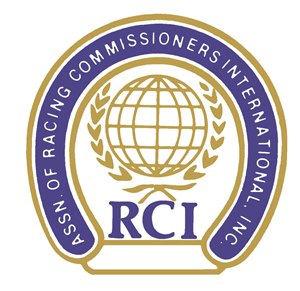Model Rules Committee to Consider Medication Changes


With a greater push for equine safety on the racetrack, multiple policy changes regarding medication and other treatments are scheduled to be considered at the Dec. 12 meeting of the Association of Racing Commissioners International Model Rules Committee.
The ARCI is an umbrella organization of official governing, rule-making bodies for horse racing and greyhound racing, with the majority of its members located throughout North America. Member agencies help develop model rules, standards, and best practices that it then encourages its members to adopt.
The model rules committee, a key step in that process, will meet Dec. 12 in Tucson, Ariz., following the University of Arizona Race Track Industry's Program's Global Symposium on Racing.
Up for consideration at the model rules meeting is an amendment to the controlled therapeutic schedule and model rules that would require the administration of non-steroidal anti-inflammatory medications to horses be given at least 48 hours before post time, as well as a proposal to prohibit stacking—the detection of more than one NSAID in a horse's post-race blood or urine sample. The proposed changes are aimed to eliminate the masking of possible soundness issues that can occur. Currently some NSAIDs, including phenylbutazone, are permitted to be administered 24 hours before a race.
Other proposals on medication and treatment include extending the stand down to 14 days following inter-artricular injections in flat racing, a prohibition on the stacking of corticosteroids, and a modification in the prohibited practices concerning bisphosphonates that would restrict the use of bisphosphonates to horses 4 and older according to label requirements and only for diagnosed cases of navicular disease. Regular authorities would be required to be notified within 24 hours of the use of bisphosphonates and the horse would be placed on the veterinarian's list for no less than six months.
In August, the ARCI's Drug Testing Standards and Practices Committee endorsed instituting a 48-hour restriction on administration of NSAIDs, which include phenylbutazone, and a 14-day restriction on the administration of corticosteroids, pending scientific review.
Aside from the medication issues, a change in the ARCI's interference policy could come to a possible vote after it was tabled at the previous Model Rules Committee meeting Aug. 8 in Saratoga Springs, N.Y. A shift to Category 1 rules are listed on the agenda to be considered.
With the Category 1 standard, disqualifications would likely be more limited as DQs would occur only when it's determined that a horse who was interfered with would have finished ahead of the horse who caused the interference—if not for that foul. With the current Category 2 standard, if the stewards determine interference cost a fouled horse a better placing, the horse that interfered is disqualified and placed behind the horse or horses that it fouled.
The United States and Canada are among the few remaining countries operating under Category 2. The International Federation of Horseracing Authorities adopted Category 1 as its model in 2017.
Also up for a possible vote is a proposed amendment to the pari-mutuel wagering model rule that would allow racing associations to make a business decision on which wagering pools they offer. By changing "shall offer" to "may offer" in the rules, racing associations could minimize minus pools in place or show pools when a prohibitive favorite appears in a short field.
A proposed amendment in jockey weights that would change the minimum to 118 pounds, minus a few exceptions, instead of 116 pounds, was a late submission on the agenda.
